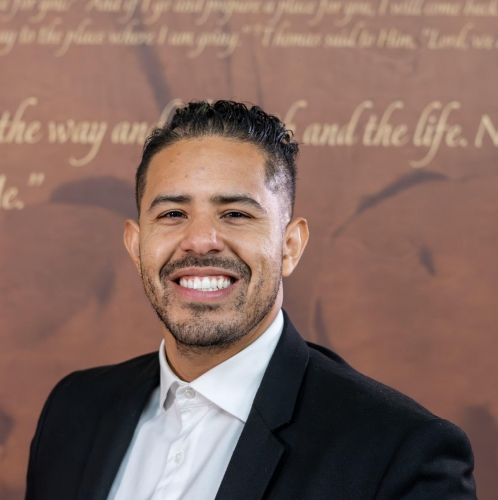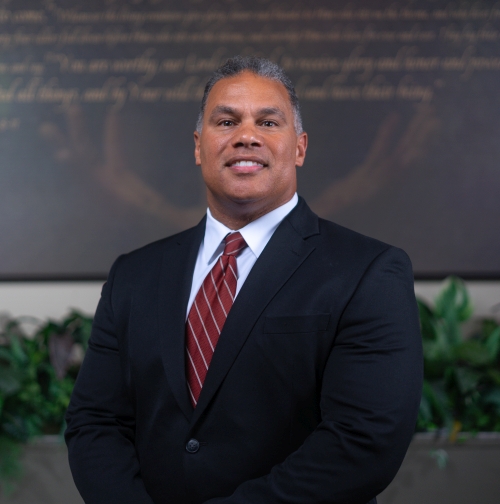The Fruits of Freedom – Pastor Brian Cassell
Briefing Document: “Freedom in Christ” – Key Themes and Ideas from the Church Service
This briefing document summarizes the main themes, important ideas, and factual information presented during the “2025-06-27 – Church Service,” with particular emphasis on the concept of “freedom in Christ.”
I. Core Message: Freedom in Christ
The central theme of the service revolves around the concept of freedom, specifically distinguishing between worldly freedoms (political, social) and the profound, transformative freedom found in Christ. The sermon, largely based on Galatians chapter 5, emphasizes that true freedom is not merely freedom from something, but also freedom for something – to live like Jesus and bear the “fruit of the Spirit.”
- Worldly vs. Spiritual Freedom: The service acknowledges and celebrates national freedoms, particularly in the context of Independence Day. However, it strongly asserts that these are secondary to the spiritual freedom offered by Christ. The speaker highlights that “Soldiers fought for our nation’s freedom. And Christ he paid dearly for a different kind of freedom. Oh right, freedom from sin.” This is further illustrated by the staggering statistic that “75% of the world’s population are currently living under some type of tyrannical rule. That’s 5.7 billion people,” and “50 million people are still living in some form of modern-day slavery.” These statistics underscore the preciousness of national freedom while setting the stage for the more profound spiritual freedom.
- Freedom from Sin and Bondage: Christ’s freedom liberates believers from “the penalty of sin, from guilt and shame, from death and the second death resulting from sin.” It also grants “freedom from the power of sin in our lives through his indwelling spirit.” The ultimate promise is “freedom from the presence of sin when he comes again.”
- Freedom “For”: Bearing the Fruit of the Spirit: The sermon repeatedly returns to Galatians 5:22-23, which lists the “fruit of the spirit: love, joy, peace, longsuffering, kindness, goodness, faithfulness, gentleness, self-control.” This is presented as the tangible manifestation of true freedom in Christ. The speaker asks, “What fruit is being seen in our lives? Is it the fruit of the spirit which these scriptures are about or is it something else some wild thing that doesn’t belong there?” This emphasizes that freedom empowers believers to exhibit these divine characteristics.
II. Dangers to True Freedom: Legalism and Licentiousness
The sermon identifies two primary dangers that hinder true freedom in Christ:
- Legalism (Law without Love): This is characterized by attempting “to earn God’s favor by keeping the law, the works of the law.” Paul, in Galatians 5:2-4, warns against becoming “estranged distant from Christ” and having “fallen from grace” by trusting in one’s own works rather than Jesus. Legalism is depicted as “oppressive” and leads to “backbiting, attack, condemn, judge” within the church, as “misery loves company.” The phrase “Law without love always results in tyranny” is a key takeaway, leading to “oppression of ourselves and other people.”
- Licentiousness (Love minus Law / Fleshly Desires): This involves using “this liberty as an opportunity to follow the desires of the flesh.” The sermon lists “works of the flesh” from Galatians 5:19-21, including “adultery, fornication, uncleanliness, lwdness, idolatry, sorcery, hatred, contentions, jealousies, outbursts of wrath, selfish ambitions, dissensions, heresies, envy, murders, drunkenness, revalries.” These are described as a “slow fade” that leads to “compromises,” “guilt,” “shame,” and ultimately “death” (“to be carnally minded…is death”). This is portrayed as “slavery” to oneself and one’s desires, where “our self-centerness is always destructive.”
III. Path to True Freedom: Abiding in Christ and the Holy Spirit
The service outlines how to experience and maintain true freedom in Christ:
- Allegiance to a Heavenly Kingdom: While grateful for national freedoms, believers’ “allegiance and citizenship and permanent residence is in another kingdom and in a heavenly country.” This perspective shapes how they live out their earthly freedoms.
- Faith Working Through Love: Galatians 5:6 is highlighted: “faith working through love is what it’s all about.” This contrasts with “following the rules and trying to earn God’s favor through outward acts.”
- Law Plus Love: The ideal state is described as “freedom in the spirit is not love minus law or law minus love. It is love plus law that brings freedom because the law of God actually is the law of love.” God’s law is likened to “train tracks,” providing guidance “within the bounds of what is healthy and good what is holy what is after my character to fulfill my purpose in your life.”
- Spirit-Led Life: The Holy Spirit is presented as the enabler of true freedom. “To be spiritually minded is life and…peace.” The Spirit “gives us new desires” and “propels along by the wind carried along by a greater power than itself.” The analogy of a sailboat is used to illustrate how humans “Stop trying to figure everything out” and let God “be the wind in yourselves.”
- Constant Receiving and Abiding: The sermon emphasizes “a constant receiving of his spirit. A life of unreserved surrender to his service every day.” It’s a “continual filling a continual asking” because “every single day we leak the spirit.” “Abiding in Christ means a constant receiving of his spirit.”
- Presence over Performance: A crucial point is made: “The spirit does not need your performance. He just needs your presence.” Believers are called to be “surrendered instruments, not the actual players of the instruments.”
IV. Key Supporting Ideas & Facts
- Community and Support: The service emphasizes the church as a family, with expressions of welcome and announcements for community events like a baby shower, youth family night, and a ladies’ social.
- Prayer and Praise: The importance of prayer is highlighted through the offering of prayer cards, which are promised to be “given careful loving attention” and prayed about during the pastor’s meeting.
- Baby Dedication: A significant portion of the service is dedicated to the baby dedication of Lana Grace Santana.
- Name Meaning: “Lana is actually a Hawaiian name and it means enjoyment… happy relaxed leisure but it can also be interpreted as contentment.”
- Scriptural Connection: Psalm 73:26 (“My flesh and my heart may fail but God is the strength of my heart and my contentment forever my portion my contentment my happiness”) is shared as a verse for Lana, emphasizing Jesus as her source of happiness and contentment.
- Parental Role: Parents are encouraged to model Christ’s love to their children: “The best picture of the love of Jesus that Lana will have is how you two love each other.”
- Dedication Vow: Wallace’s song of dedication includes the vows: “I dedicate this baby back to you,” and “I dedicate myself to train and love them like you do I will do my part Oh I will put your word into their heart.”
- Tithes and Offerings: The special offering is designated for “Florida Advance,” which supports “education, our young people’s camp and various other ministries” at the conference level. Loose offerings go to the “church budget here at Spring Meadows.”
- Music and Worship: The service includes various musical elements: an orchestra, a choir, and congregational singing. The orchestra’s music is described as sounding “good,” and the choir as “amazing.” The concept of lives as an “orchestra” playing “heaven’s melody” through the “fruits of the Spirit” is a poetic metaphor for Christian witness.
- National Identity & Christian Allegiance: The “America” song and discussion of Independence Day, Juneteenth, and 1776 provide a strong national context, immediately followed by the reminder that Christian allegiance is to a “heavenly country.”
- Personal Anecdotes: The speaker shares two powerful personal stories:
- A cousin who left the church after being physically and verbally abused by an elder, illustrating “Law without love is always tyrannical.”
- A young man addicted to drugs and alcohol who felt hopeless but found freedom in Jesus after a conversation with the speaker, highlighting that “there’s always hope” in Christ.
- Bonsai Analogy: The dying bonsai tree serves as an analogy for human attempts to sustain themselves without God: “Many times we’ve been trying trying to nurture and nourish ourselves trying to figure it out But we find ourselves we keep dying and dying.” This reinforces the message that “Without me [Jesus] you can do nothing.”
In conclusion, the service emphasizes that true freedom is a divine gift found in Christ through the Holy Spirit, enabling believers to embody love and righteous character, rather than being enslaved by legalism or fleshly desires. This freedom is experienced through constant surrender and abiding in Jesus.
Other Sermons In This Series

Rooted in the Word – Pastor Alex Harter
January 04, 2025

Beginnings Matter – Pastor Jonathan Osorio
January 18, 2025


